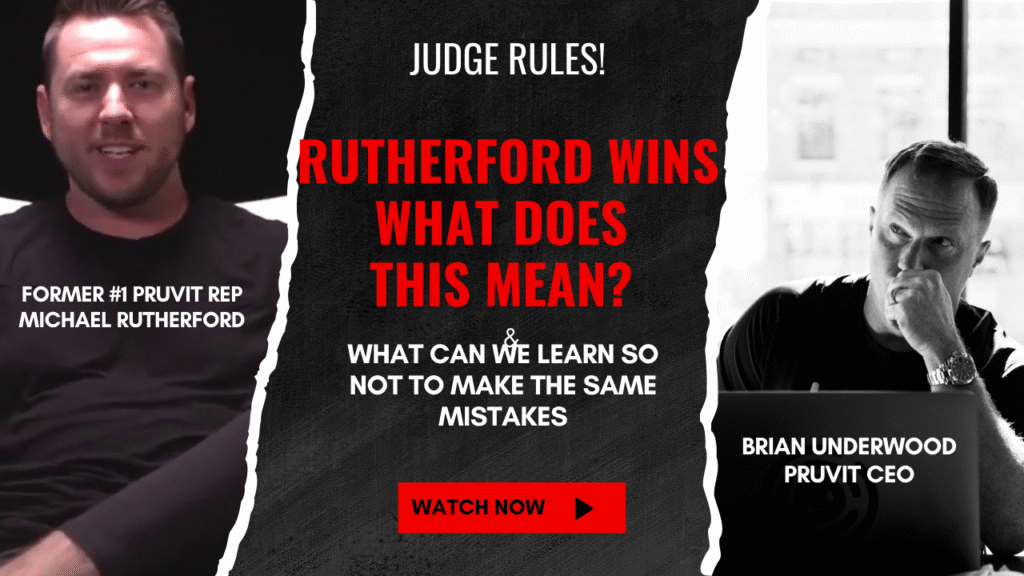In the last 15 years, I’ve studied the crypto community. My interest peaked in 2011 when Trendon Shavers launched the first crypto-ponzi scheme, Bitcoin Savings and Trust (BCST). Shavers managed to raise 764,000 BTC (worth $4.5 million in 2011) and was asked to return $40 million, but he only ended up serving 16 months in prison. Now, those bitcoins are worth a whopping $43 billion. It’s rumored that some of the funds were put into MtGox, which went under in 2014. On July 5th, 2024, bitcoin and bitcoin cash started being returned to former MtGox account holders.
Top 3 Crypto Scams To Hit MLM:

OneCoin – Founded by CryptoQueen Dr. Ruja Ignatova PhD ( FBI is now offering $5 million for info leading to her arrest), her husband Daniel Dabek, and master distributor Karl Sebastian Greenwood. OneCoin fraudulently raised over $4 billion from MLM investors. Ignatove is still at large and on the FBI and Interpol’s Most Wanted list. Greenwood is serving a 20-year sentence. Other Onecoin officers and promoters sentenced to date: Irina Dilkinska, former head of legal and compliance for Onecoin, sentenced to 4 years. Attorney Mark Scott, former equity partner at Locke Lord LLP, was sentenced to 10 years. Konstantin Ignatov, the CryptoQueen’s brother, pled guilty, was sentenced to 34 months, and has now been released from prison.
Bitconnect – Founded by Satish Kumbhani, it was run as a cryptocurrency lending platform via a BitConnect Trading Bot which purported a . Regulators claim that investors have lost $2.4 billion. Kumbhani, Glenn Arcaro, Future Money LTD, Trevon Brown, Craig Grant, Joseph Jeppesen, Ryan Maasen , Michael Nobel, and Laura Mascola were charged with running and promoting a Ponzi, Pyramid, fraud, conspiracy to commit fraud, selling of unregistered securities. The SEC did get victims of BitConnect more than $17 million to compensate for losses from Glenn Arcaro: Trevon Brown, Michael Noble (a.k.a. Michael Crypto), and Joshua Jeppesen with final judgments.
BitClub Network: From April 2014 through December 2019, the DOJ (Department of Justice) claimed Matthew Brent Goettsche, BitClub Network’s creator and operator, Silviu Catalin Balaci, Russ Albert Medlin, Jobadiah Sinclair Weeks, and Joseph Frank Abel took in over $720 million. On December 10, 2019, the first public notice was given in the press release announcing the arrest of Goettshe, Weeks, and Abel, who were indicted in December 2019 in connection with the BitClub Network scheme. Balaci, was arrested in Germany, and Medlin, was arrested in Jakarta on unrelated alleged sexual assault against minors and held for extradition. September 3, 2020, United States Attorney District of New Jersey press release stated Abel admitted to conspiring to offer and sell unregistered securities and subscribe to a false tax return concerning his role in the BitClub Network, a cryptocurrency mining scheme. On November 5, 2020, U.S. Attorney Craig Carpenito announced that Weeks admitted his role in a conspiracy to offer and sell unregistered securities and tax evasion in connection with a $722 million cryptocurrency mining scheme.
In an exciting twist, U.S. Attorney Philip R. Sellinger announced that Gordon Brad Beckstead, an investor in BitClub Network, admitted to conspiracy to commit money laundering and one count of aiding in the preparation of a false tax return. Beckstead, a BitClub Network investor, admitted conspiring with Goettsche and others to launder funds earned by Goettsche through his operation of the BitClub Network.
At the direction of Goettsche, Beckstead created and controlled various entities that were used by Beckstead, Goettsche, and others to shield Goettsche’s association with the BitClub Network and to disguise income derived by Goettsche through his operation of the BitClub Network. Beckstead further admitted to controlling bank accounts associated with the entities and directing transfers to and from the accounts exceeding $50 million.
Beckstead acknowledged that the transfers were designed to conceal the source of Goettsche’s income, disguise Goettsche’s ownership of certain property and assets paid for with BitClub Network proceeds, and to help Goettsche evade tax reporting requirements. Beckstead also admitted that he and others provided false and misleading information to financial institutions to conceal the source of Goettsche’s income.
Beckstead, a former CPA, also admitted to aiding at least two different tax preparers in preparing Goettsche’s false 2017 and 2018 federal tax returns. Beckstead provided the tax preparers with documents and records to assist in preparing the returns. Beckstead admitted that he and Goettsche knew the 2017 and 2018 tax returns were fraudulent in that they failed to report more than $60 million in total income earned by Goettsche through his operation of the BitClub Network. This allowed Goettsche to avoid paying more than $20 million in federal income taxes.
Three Crypto Crimes SEC Won Settlements:
The #1 crime the Securities and Exchange Commission always focuses on is: The Sale of Unregistered Securities. Many marketers, especially those in the crypto niche, do their best to claim crypto isn’t or shouldn’t be governed by governmental regulators. Cryptocurrencies tend to fall into two categories commodity or security. The Securities and Exchange Commission Chairman has stated that Bitcoin isn’t a security, so the CFTC governs it, and all other cryptocurrencies are securities. The framework used by the SEC to determine if the investment is a security or not is found here.
The #2 crime the SEC focuses on is Conspiracy to commit Security Fraud. Some believe conspiracy to commit fraud is #1, but in reading through SEC Complaints and court docs, I’ve concluded the SEC attorneys are more interested in a WIN than anything else, so they know it’s far easier to get the DOJ to prosecute and win on the unregistered security allegation than any other. However, the Conspiracy to commit Security Fraud is broad enough that, many times, regulators can pull from several different statutes to substantiate their claims.
18 U.S. Code § 1348 – Securities and commodities fraud: Whoever knowingly executes, or attempts to execute, a scheme or artifice—
(1)to defraud any person in connection with any commodity for future delivery, or any option on a commodity for future delivery, or any security of an issuer with a class of securities registered under section 12 of the Securities Exchange Act of 1934 (15 U.S.C. 78l) or that is required to file reports under section 15(d) of the Securities Exchange Act of 1934 (15 U.S.C. 78o(d)); or
(2)to obtain, by means of false or fraudulent pretenses, representations, or promises, any money or property in connection with the purchase or sale of any commodity for future delivery, or any option on a commodity for future delivery, or any security of an issuer with a class of securities registered under section 12 of the Securities Exchange Act of 1934 (15 U.S.C. 78l) or that is required to file reports under section 15(d) of the Securities Exchange Act of 1934 (15 U.S.C. 78o(d));
shall be fined under this title, imprisoned under 25 years, or both.
923. 18 U.S.C. § 371—Conspiracy to Defraud the United States: The general conspiracy statute, 18 U.S.C. § 371, creates an offense “[i]f two or more persons conspire either to commit any offense against the United States, or to defraud the United States, or any agency thereof in any manner or for any purpose. (emphasis added). See Project, Tenth Annual Survey of White Collar Crime, 32 Am. Crim. L. Rev. 137, 379-406 (1995)(generally discussing § 371).
965. Conspiracy to Violate the Mail Fraud or Wire Fraud Statutes: Where a scheme and artifice to defraud is shared by two or more, it becomes a conspiracy to defraud. The essential elements of conspiracy to commit mail fraud or wire fraud in violation of 18 U.S.C. § 371, are (1) an agreement between two or more persons; (2) to commit mail fraud or wire fraud; and (3) an overt act committed by one of the conspirators in furtherance of the conspiracy. See United States v. Brumley, 79 F.3d 1430, 1442 (5th Cir. 1996) (citing United States v. Hatch, 926 F.2d 387, 393 (5th Cir.), cert. denied, 500 U.S. 943 (1991)); United States v. Massey, 827 F.2d 995, 1001 (5th Cir. 1987); United States v. Gordon, 780 F.2d 1165, 1170 (5th Cir. 1986)). “Conspiracy to commit a particular substantive offense cannot exist without at least the degree of criminal intent necessary for the substantive offense.” Massey, 827 F.2d at 1001 (quoting Ingram v. United States, 360 U.S. 672, 678 (1959)).
The #3 Crime is tax evasion or other tax-related fraud: 26 U.S. Code § 7201 – Attempt to evade or defeat tax: Any person who willfully attempts in any manner to evade or defeat any tax imposed by this title or the payment thereof shall, in addition to other penalties provided by law, be guilty of a felony and, upon conviction thereof, shall be fined not more than $100,000 ($500,000 in the case of a corporation), or imprisoned not more than 5 years, or both, together with the costs of prosecution. (Aug. 16, 1954, ch. 736, 68A Stat. 851; Pub. L. 97–248, title III, § 329(a), Sept. 3, 1982, 96 Stat. 618.)
Now this doesn’t even start on the FTC (Federal Trade Commission) statutes, which can bring a whole new set of issues.
That’s The Past, What About Today’s Crypto Projects?
The latest SEC activity has been robust and across the board:
SEC .v Ripple Labs Inc. According to the SEC’s complaint, Ripple; Christian Larsen, the company’s co-founder, executive chairman of its board, and former CEO; and Bradley Garlinghouse, the company’s current CEO, raised capital to finance the company’s business. The complaint alleges that Ripple raised funds, beginning in 2013, by selling digital assets known as XRP in an unregistered securities offering to investors in the U.S. and worldwide. Ripple also allegedly distributed billions of XRP in exchange for non-cash consideration, such as labor and market-making services. According to the complaint, in addition to structuring and promoting the XRP sales used to finance the company’s business, Larsen and Garlinghouse also effected personal unregistered sales of XRP totaling approximately $600 million. The complaint alleges that the defendants failed to register their offers and sales of XRP or satisfy any exemption from registration, violating the registration provisions of the federal securities laws.
SEC .v Coinbase – SEC Charges Coinbase for Operating as an Unregistered Securities Exchange, Broker, and Clearing Agency. Coinbase also charged for the unregistered offer and sale of securities in connection with its staking-as-a-service program. The Securities and Exchange Commission today charged Coinbase, Inc. with operating its crypto asset trading platform as an unregistered national securities exchange, broker, and clearing agency. The SEC also charged Coinbase for failing to register the offer and sale of its crypto asset staking-as-a-service program.
SEC .v Digital Licensing: The Commission filed its sealed Complaint on July 26, 2023.In it, the Commission alleges, “Defendants have defrauded thousands of investors of at least $49 million.”Specifically, the Commission alleges some Defendants, including the DEBT Council Defendants, made false and misleading representations to investors.It also alleges some Defendants, including the DEBT Council and iX Global Defendants, acted as unregistered brokers and all Defendants offered and sold unregistered securities. The Complaint includes numerous factual allegations, but the court will focus on those germane to irreparable harm. (The SEC was sanctioned by the Judge in the TRO case and asked for the judge to dismiss the case.)
Conclusion & Due Diligence List For Joining a Crypto MLM
If you are exploring investing in the crypto community or becoming a crypto sales and marketing entrepreneur, you must realize the risks involved. Here is a short due diligence list to help you get started in exploring any crypto company or crypto project.
- Who are the principal owners or investors? Take each name and do a background check on each person. If you find any questionable situations, then schedule a call and ask them about their side of the situation. Pull all legal documents to read what happened.
- What outside law firms are involved with the company? Has a legal option been provided to the company, and can you review? Schedule a call with the partner or associate representing the company or project to discuss potential risks and how these are being mitigated.
- Review the Financial Transparency Report: While most private companies will not want to open their internal financials, there should be no hesitancy to provide evidence of financial stability. Questions to ask: Does each project have in-house accounting or outsourced accounting? Is there a trust account for investors’ money or commissions owed? Are the corporate financials audited?
- Review and investigate each project whitepaper: Don’t just read and accept the whitepaper, investor desk, or presentation. Instead, take the time to dig into the content to determine if the facts are accurate.
- Visit project sites and corporate offices. One of the new concepts to hit the business world post-pandemic is to claim “Cloud Offices.” In other words, founders and executives claim they save money without an office. While this does have merit, in the crypto world, there will, at the very minimum, be a data center somewhere. Find out where the data center is located and dig into it as well.
This is not an exhaustive list, but it will get you started and help mitigate your exposure and risk to regulator actions and potential Crypto scams, ponies, and pyramids.














